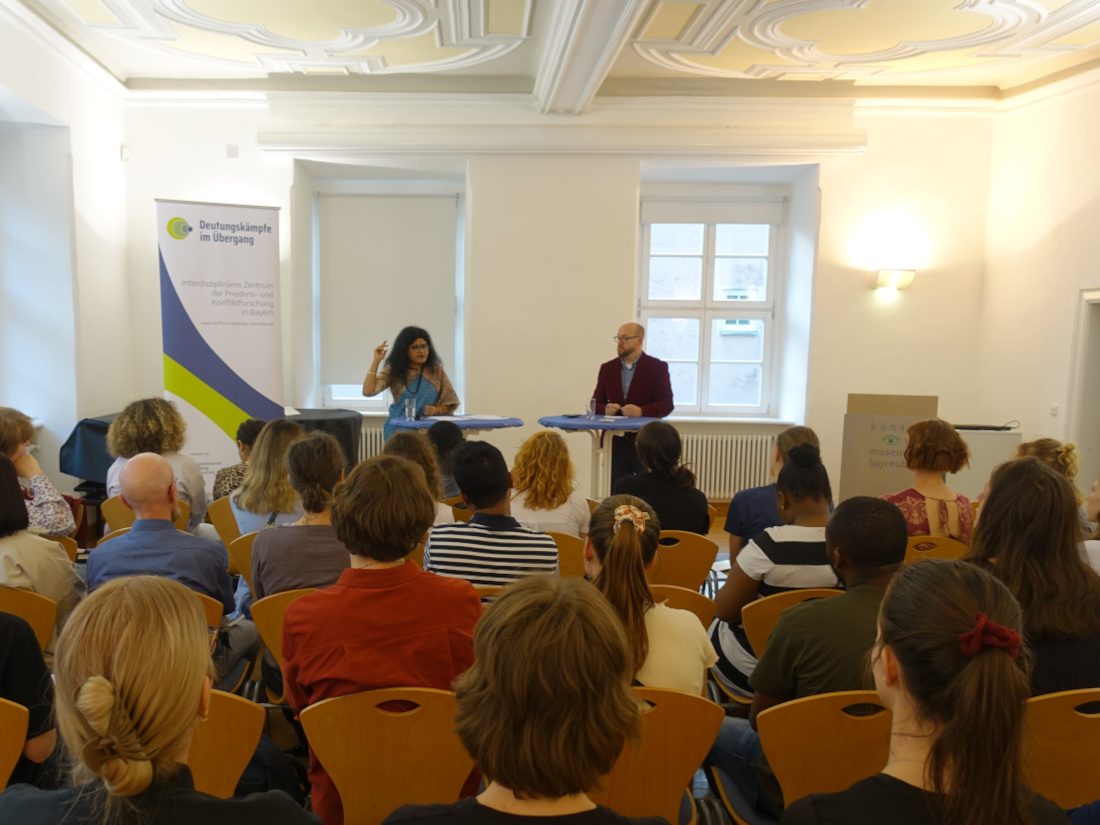We hosted two exciting postcolonial thinkers – Swati Parashar & Adam Sandor – at the University of Bayreuth on 30 April 2024.
Relisten to their talk: “The Bodies that don’t count: Understanding the Coloniality of Violence in our Times”. The discussion centered on a series of key questions: what are the subjects of violence? What bodies are being counted? What ends up, conversely, not being seen and therefore not measured as much as other forms of violence? And how can we change this?
We are living in times when we don’t know when peace begins and ends. So I think those continuities between peace and war is what we’ve picked up. How violence cascades into all sorts of other violence and how it metamorphoses into so many different things. Those are things that we’ve learned – basically to understand violence not as ruptures that happen in the way politics is organized but as a continuum. If you look back into history and trace the kinds of linkages that it has, we’ve also learned about exclusions and marginalization to know which voices are amplified. (…) And I think post-colonial approaches actually teach us that there is so much that we don’t know about violence. (Swati Parashar)
Swati Parashar, Professor of Peace and Development Studies at the Universitx of Gothenburg, is an expert on feminist and postcolonial international relations. Adam Sandor, postdoc researcher within the Postcolonial Hierarchies network at the University of Bayreuth, examines the governance of non-traditional security threats (terrorism, drug trafficking, money-laundering, violent extremism) in Africa.
The event was co-organized by the research networks Conflicts.Meanings.Transitions and Postcolonial Hierarchies, both funded by the German Federal Ministry of Education and Research (BMBF). Moreover, it was held within the colloquium series of the Fachgruppe Soziologie and within the Bayreuth Peace Talks series of the UBT Peace and Conflict research network.


